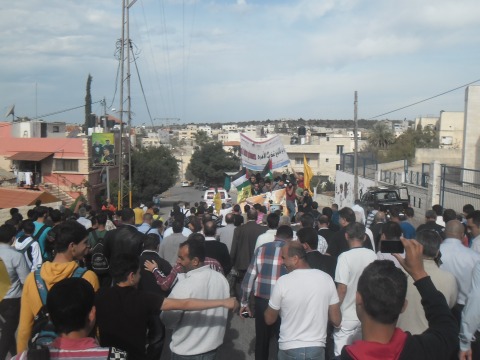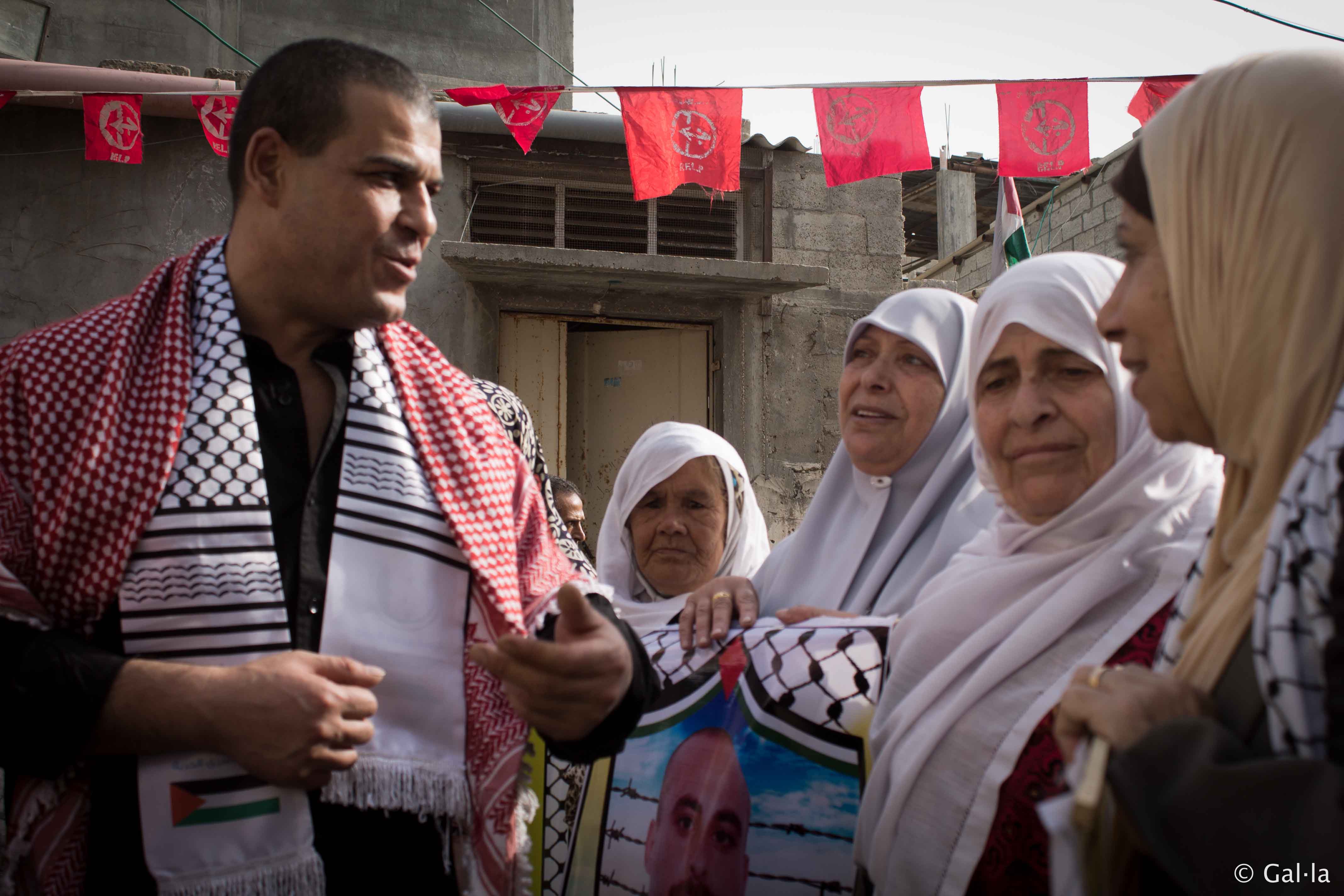Category: Reports
-
An unrelenting assault on the village of Deir Istiya’s farmland
28th November 2013 | International Solidarity Movement, Nablus Team | Deir Istiya, Occupied Palestine The village of Deir Istiya has encountered severe disruption to its agriculture and water supply since 1990 from the Israeli authorities and nearby illegal settlements. This has culminated in the Israeli army’s planned action to uproot nearly 2500 olive trees in the…
-
Demonstration against Israeli forces as invasions and arrests increase in Azzoun
28th November 2013 | International Solidarity Movement, Nablus Team | Azzoun, Occupied Palestine Yesterday afternoon in Azzoun village, there was a demonstration attended by more than 250 people. This protest was against the Israeli forces’ continuing night invasions, arrests, and their treatment of Palestinian prisoners. The demonstration began in the center of Azzoun at noon, hundreds of…
-
“I’m very happy now beside my family,” newly freed prisoner says at Gaza rally
26th November 2013 | International Solidarity Movement, Marco Varasio | Gaza, Occupied Palestine On Monday morning, relatives and friends of Palestinian detainees, as well as Palestinian and solidarity activists, rallied at the International Committee of the Red Cross’ Gaza office to demonstrate their support of the Palestinian prisoners. The rally started with the chanting of slogan…



